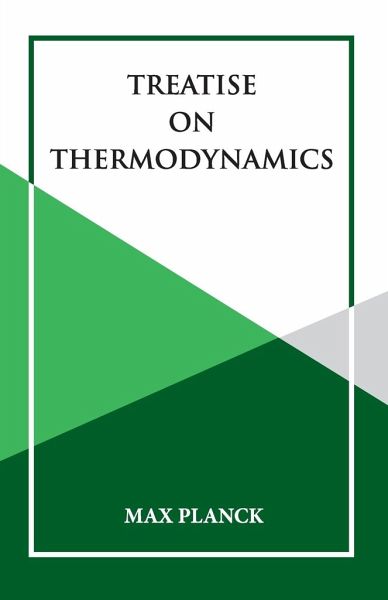
Treatise on Thermoynamics

PAYBACK Punkte
9 °P sammeln!
PART I. FUNDAMENTAL FACTS AND DEFINITIONS. I. Temperature II. Molecular Weight III. Quantity of Heat PART II. THE FIRST FUNDAMENTAL PRINCIPLE OF THERMODYNAMICS. I. General Exposition II. Applications to Homogeneous Systems III. Applications to Non-Homogeneous Systems PART III. THE SECOND FUNDAMENTAL PRINCIPLE OF THERMODYNAMICS I. Introduction II. Proof III. General Deductions PART IV. APPLICATIONS TO SPECIAL STATES OF EQUILIBRIUM. I. Homogeneous Systems II. System in Different States of Aggregation III. System of any Number of Independent Constituents IV. Gaseous System V. Dilute Solutions Cat...
PART I. FUNDAMENTAL FACTS AND DEFINITIONS. I. Temperature II. Molecular Weight III. Quantity of Heat PART II. THE FIRST FUNDAMENTAL PRINCIPLE OF THERMODYNAMICS. I. General Exposition II. Applications to Homogeneous Systems III. Applications to Non-Homogeneous Systems PART III. THE SECOND FUNDAMENTAL PRINCIPLE OF THERMODYNAMICS I. Introduction II. Proof III. General Deductions PART IV. APPLICATIONS TO SPECIAL STATES OF EQUILIBRIUM. I. Homogeneous Systems II. System in Different States of Aggregation III. System of any Number of Independent Constituents IV. Gaseous System V. Dilute Solutions Catalogue of the Author's Papers on Thermodynamics Index














